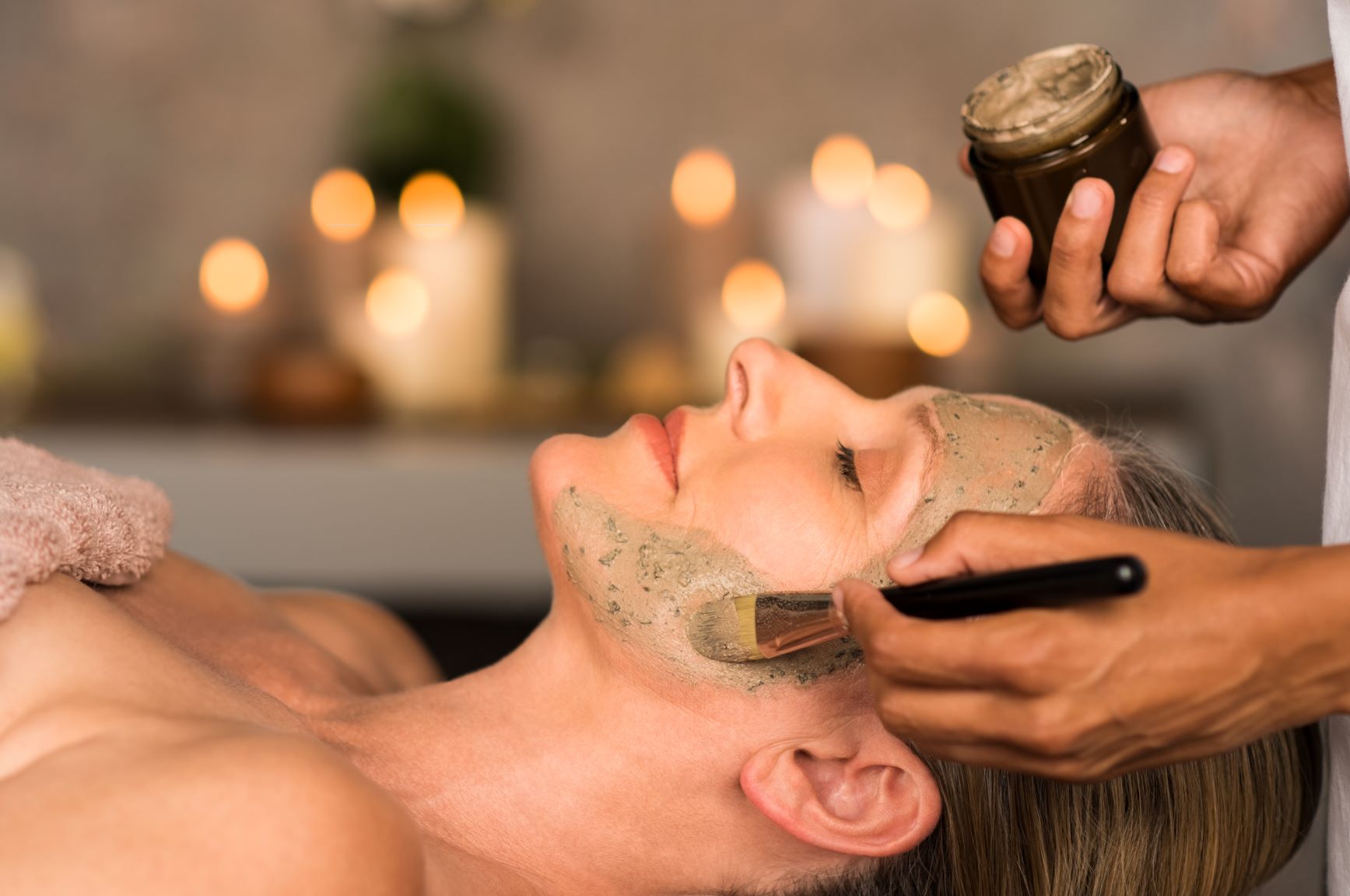
Makeup & Skin Care: 12 Pieces of Advice on How to Balance Them
“Is makeup bad for my skin?”
“Is it clogging my pores?”
“What’s the best way to remove it at night?”
“Is it okay to use every day?”
“What’s the best kind to use for my skin type?”
The fact is, makeup is being worn on the face for 12-15 hours a day, so for better or worse, it’s definitely affecting your skin more than you might realize. That’s why it’s so important to know how your choices are affecting the skin on your face.
Here are 12 common mistakes for choosing, wearing and removing makeup, including tips and solutions to ensure your skin stays in the best possible health with fewer lines, wrinkles, blemishes, and clogged pores.
- What do I need to know about my makeup?
You shouldn’t be going to bed with your makeup on. It’s important to know that your skin is incredibly dirty at night due to:
- sebum (oil) that secretes through your pores
- bacteria from touching your face all day with your hands and dirt under your nails (without even realizing it)
- makeup from setting powders, primers, blushes and liquid foundations
Letting your skin marinate in dirt, oil, and makeup all day and night can lead to clogged pores, breakouts, and contribute to a dull-looking complexion. It’s so important to cleanse your skin every night and perform a nighttime routine for your skin type.
2. Don’t count on cleansing wipes to remove your makeup.
Despite their convenience, I never suggest cleansing wipes to remove face makeup because they don’t truly clean the skin. Instead, they smear dirt, bacteria, oil, and makeup across it. A cleanser without the addition of any water will break down and dissolve the dirt in the oily portion of the soap (surfactant) molecule only and remove it onto the wipe. However, it’s the actual rinsing action from water that removes it and cleans the skin. Essentially, using a wipe is like applying cleanser to your face with soap and then not washing it off.
3. Stop wetting your skin before removing makeup.
Particularly when it comes to removing liquid foundation (and removing water-resistant sunscreens, too), using a cream or lotion-based cleanser is the best product to use for proper removal. However, if you wet your skin with water first and then apply your creamy cleanser, it will be diluted and the makeup will not break down very well, leaving you with unclean skin.
The best way to use a cleanser to remove face makeup is this way:
- Massage a cream-based cleanser onto dry skin (not wet) for 30 seconds.
- Wet your fingertips with water and massage through again for another 30 seconds.
- Rinse well with lukewarm water.
- For complete removal, wipe over the skin with a washcloth, baby washcloth, facial sponge or cleansing cloth.
4. Stop thinking that makeup is bad for your skin and that you need to let it breathe.
For starters, the skin doesn’t have a respiratory system so the concept of the skin “breathing” is a myth. The real truth is that face makeup when in the form of powder or liquid foundation, gives additional protection from the sun, even if it doesn’t list an SPF number. Since protecting your skin from UV light during the day should be priority #1, makeup can be extremely beneficial. Of course, you’ll want to choose the right type of makeup for your skin type to ensure it’s the best fit.
5. Avoid using primer, liquid foundations, cream blushes, and cream-based highlighters if you’re prone to getting clogged bumps.
If you notice the texture of your skin when it’s au natural is changing and you’re using primer, liquid foundations, cream blushes, and cream highlighters, then one or the combination of all of these might be the cause. I certainly understand wanting to have glowing, shiny, light-reflective and poreless-looking skin, but a lot of the products used to achieve this look will contain many oils and emollients that might not be compatible with your skin. Add in the fact that it’s staying on your face for 12-15 hours a day, you’re sure to run into problems.
My best suggestion (if you might now suspect these to possibly be a problem for your skin), is to limit their use and try to figure out which makeup is the cause. There is no one perfect primer or liquid foundation makeup that will work for every skin type, so you just have to experiment. I have found that it’s usually just trial and error.
Regardless, after cleansing your skin at night, applying a detox mask can be really amazing for keeping pores clean and preventing makeup from causing clogged bumps and blemishes. Just five minutes of it on the skin can do the trick. How do you get rid of these clogged bumps?
When it comes to getting rid of these clogged pores once you determine and eliminate the cause, along with adding in a well-formulated, pore-clearing acid-based serum with salicylic acid, should help to diminish these. However, sometimes a deep pore cleansing facial from an esthetician may be needed if they are really deep in the skin.
6. Don’t allow your makeup to interfere with the natural healing process of a blemish.
The goal with any blemish is to make it go away as fast as possible with the least amount of scarring, right? Well, I’m here to tell you that your makeup could be causing a problem. When you have a blemish, there is infection and inflammation, and when makeup and concealer are applied, the oils and synthetic perfumes can travel into the blemish and further the aggravation. (In addition to touching your face all day with dirty hands!)
7. You shouldn’t be mixing your foundation makeup with your sunscreen.
Anytime you purchase a product and you alter its formula, it can change its effectiveness. In the case of a sunscreen, it is important to know that a product like this has gone through rigorous testing and approval by the FDA to ensure it’s truly protecting your skin from the sun. Of all the products you want to be effective, sunscreen is the one. If you’re wanting a little coverage, my suggestion is to find a lightweight foundation and apply it over your daily sunscreen.
8. Limit the use of oil-based eye makeup removers
Removing eye makeup before bed is necessary but unless you’re wearing waterproof mascara and need the oil to remove it, I suggest you get into the habit of using a water-based formula. The problem with oil-based removers is that you risk the oil traveling into the eyes and causing unnecessary undereye puffiness. Secondly, if it’s not washed off really well afterward to cut the oil, any eye product applied afterward such as an undereye exfoliator or an eye cream may not be able to absorb as deeply which can weaken its effects.
Of all skincare ingredients, oils have the largest molecules and anything with a smaller molecule like eye care products will have a hard time penetrating through.
9. Stop tugging on your eyes when removing mascara and eye makeup.
Why is the eye area the first place on the face to show aging? It’s because the skin is very thin and it gets the most wear and tear from smiling, squinting and rubbing. (For those who are taking in and out their contact lenses every day, this adds additional stress to the skin tissue.) It’s very important to be mindful of being delicate with the skin especially when removing eye makeup.
Pro tip: Saturate a cotton pad with an oil-free liquid eye makeup remover and hold it onto the eye area for 30 seconds to melt away the eye makeup and mascara before gently wiping away.
Speaking of mascara, try to limit the use of waterproof formulas!
10. Avoid removing your makeup immediately before you go to bed.
What I mean by this, is that ideally, you should perform your nighttime routine earlier in the evening rather than right before your head hits the pillow. There are two benefits to performing your routine earlier in the evening.
You’re less likely to be lazy if you do it earlier. Meaning, you might skip out on doing a post-cleanse mask or applying eye cream if you’re exhausted.
Your skin will be in the best possible place to benefit from your nighttime products. It was always thought that the skin’s repair processes kick in during sleep but it’s now believed to occur when the day goes from light to dark. Do your routine earlier and your skin will be better off for it!
11. Don’t neglect your makeup brushes.
I know it takes effort but if you’re not washing your makeup brushes at least once a month, they are truly filthy and are introducing dirt, oil, and bacteria to your skin every time they are touching your face. This is definitely not helping your skin’s health. Ideally, you would be washing them weekly or even more often for acne-prone skin types, but if you’re hardly ever washing them, then make it a goal to at least do it once a month.
If you’re using a Beauty Blender (those trendy, bouncy makeup sponges), be sure to wash those after each use and replace it after three months.
12. Stop wearing the same makeup you’ve been wearing for years.
Okay, so this isn’t just a skin issue, but it’s something good to consider. If you’ve fallen into a rut with your makeup and are doing the same look day in and day out, it’s time to freshen things up and get out of a rut. Also, the advancements in makeup in the past few years have been incredible. Primers (as long as they aren’t causing your pores to get clogged) can truly work miracles for giving your skin a much smoother and smaller-pored look.
(Tip: schedule an appointment with a professional makeup artist and be open to the idea of change.)
So, there you have it. Having healthy-looking skin is not just about using the perfect skincare routine for your skin type, wearing sunscreen and limiting your time outdoors, but also about having good daily habits that are in the best interest of your skin.
I hope you enjoyed this post! If you’d like to get posts delivered to your email box, sign up for the Botanica newsletter!
Love,
Gen



Leave a Reply